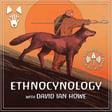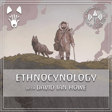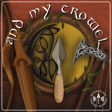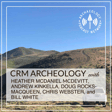
How I created Ethnocynology (Part 2) - Ep 2
In part 2 of these premiere episodes of Ethnocynology with David Ian Howe, David speaks for another 30 minutes straight (with maybe 3 pauses) about his favorite subject—Ethnocynology.
David begins by recapping what he talked about last time; how he studied archaeology, and what led him to studying dogs.
He then starts this episode off with how he grew up with an aunt who is a veterinarian and how he always had a stream of dogs in and out of the house.
He then talks about his mentors and predecessors Dr. Brian Cummings who coined the neologism “ethnocynology,” and Dr. Angela Perri, who is the leading researcher in dog genetics.
David then talks about meeting Dr. Perri in Italy at a conference, and how he bombed his opening performance at the conference.
David then continues to discuss how he created the Ethnocynology Instagram, and how it was an outlet to teach the things he had learned in grad school.
Transcripts
For rough transcripts of this episode, go to: https://www.archpodnet.com/ethno/02
Links:
- Links: davidianhowe.com
ArchPodNet
- APN Website: https://www.archpodnet.com
- APN on Facebook: https://www.facebook.com/archpodnet
- APN on Twitter: https://www.twitter.com/archpodnet
- APN on Instagram: https://www.instagram.com/archpodnet
- Tee Public Store: https://www.teepublic.com/stores/archaeology-podcast-network?ref_id=5724






